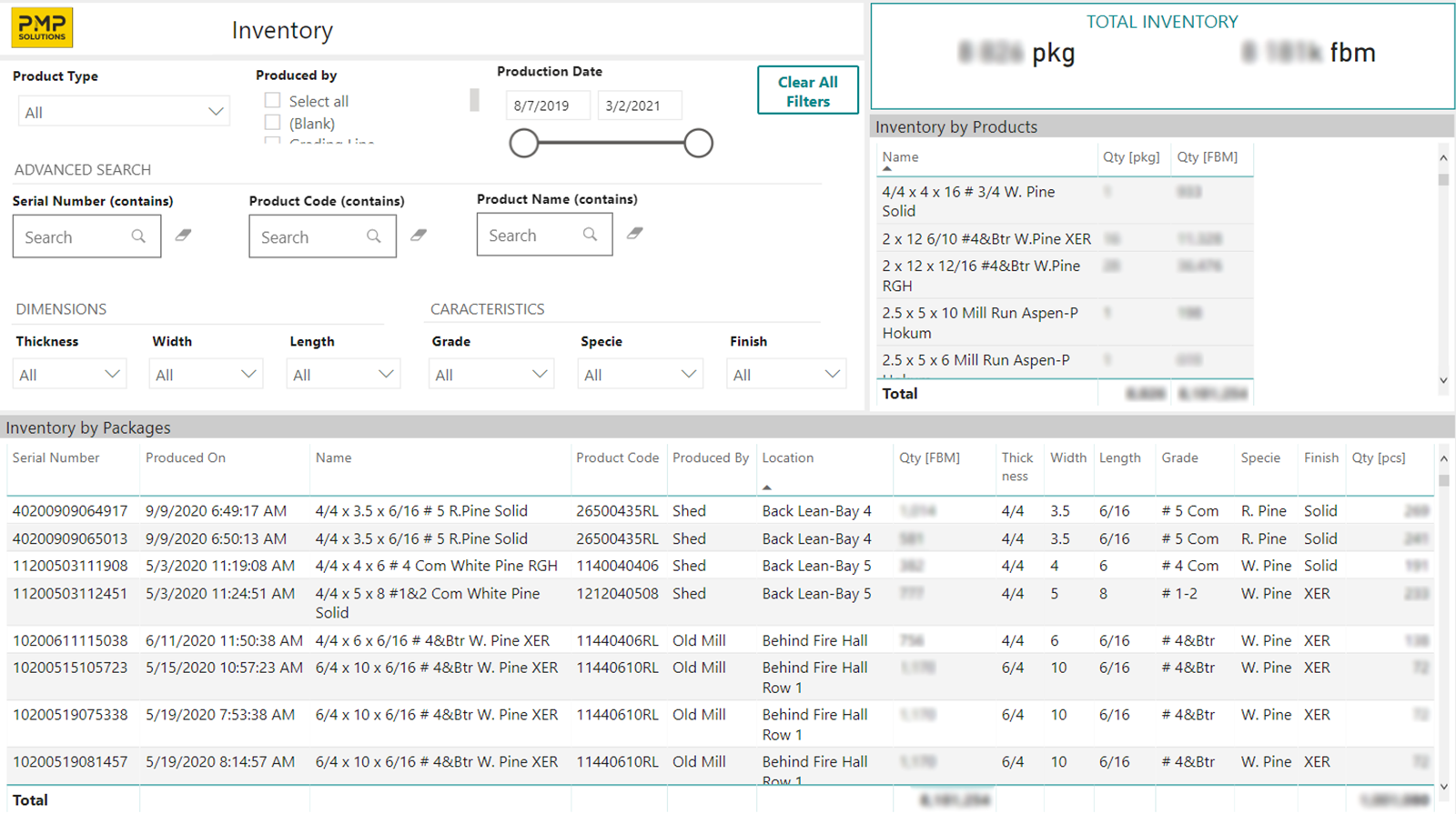Or how tapping the hidden power of information enabled Ben Hokum & Son to grow its business.
In our modern digital world, it is essential for profitability and efficiency to completely master production processes, from beginning to end. In the wood transformation industry, there are few things more important than properly managing the inventory. A poorly managed inventory invariably leads to delays, unfulfilled orders, and revenue loss.
When Ben Hokum & Son (hereafter referred to as Hokum) first approached PMP SOLUTIONS after an introduction by Autolog, the sawmill operation near Killaloe, Ontario, Canada was mostly managing its massive inventory of air-dried specialty wood manually / visually. In other words, whenever Hokum received an order for a specific product from Falcon Lumber or the rest of its salesforce, staff would have to go to the lumber yard and visually confirm its availability before proceeding—on a 200-acre yard (roughly 1 km²)! This invited errors, misplacing products, losing sales, and missing market opportunities.
This suboptimal management also made it difficult for Hokum to precisely assess available products, as well as forecast production and sales. In fact, despite tallying a physical inventory every quarter, forecasting was largely based on educated guesses rather than hard data. This operational deficiency seriously staunched Hokum’s potential growth.
The next task was to affix (manually!) an SKU on each bundle in the yard and then scan them with Zebra DS3678-ER handheld barcode scanners. Once done, Hokum had a working tally of all the bundles available in its lumber yard. The massive inventory was then integrated into PMP TeamMate™.
PMP SOLUTIONS engineers adapted its existing inventory solution for softwood, PMP WeTrack™, so that the data could be made available over the Web. We used Power BI—the Microsoft data modelling and visualization tool—to create the interfaces and reporting tools needed by Hokum and its salesforce. Fed with scanner data as packets move in, out, and around the lumber yard during the various stages of production, the system provided all involved the intelligence necessary to manage and adjust the inventory in a few clicks.
A security layer was added to make the Hokum inventory directly available through a Web browser to the salesforce, who could then use it to place orders with confidence according to the actual available lumber—from any Web-enabled device, greatly increasing agility.


This challenge required a solution that could address the shortcomings of the current inventory management method, while decreasing the workload for those involved, which involved automation.
The first technical hurdle on the road to automating Hokum’s inventory management was to truly digitize the inventory. The decision was made to use barcodes, and, in collaboration with Hokum, we developed a structure for their stock keeping units (SKU), which would identify each individual bundle in the yard.
Giving the Hokum salesforce always up-to-date data allows them to place informed orders. Similarly, the live inventory information from the lumber yard, combined with operational data, makes it possible for Hokum to provide better lead times and fulfill more orders from Falcon Lumber, among others. It also improves communications between sales and operations, driving conversations and generating ideas.
The data from PMP TeamMate combined with a quarterly physical inventory gives Hokum a more accurate picture of the value of its lumber inventory, greatly improving forecasting. This enables operations to take the driver’s seat—no more waiting for information.
Being able to fulfill orders with more confidence and an overall clearer vision of its inventory offers Hokum the agility to plan for demand more effectively and therefore grow as a business.
With powerful PMP SOLUTIONS tools, Hokum’s workforce has accurate information (date, length, grade, etc.) and the location of each bundle in the lumber yard, enabling it to work faster and more efficiently, leading to higher employee satisfaction.
